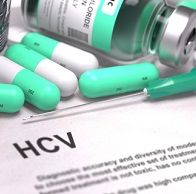Article
Insurance Lagging on Paying for HCV Antivirals
Author(s):
The high costs of direct-acting antivirals to treat hepatitis C infection is no secret, but neither is the fact that the drugs are cost-effective. Pennsylvania researchers found insurers were lagging in approving payment for the drugs in their four-state region, with Medicaid programs the worst offenders.

The high prices of direct-acting antivirals to treat hepatitis C infection is not a secret—but neither is the fact that the drugs are cost-effective.
Nevertheless, researchers reported at the Liver Meeting (AASLD) in San Francisco, CA, among patients who clearly needed the drug, 16% of insured patients in the researchers’ local region were told by their insurers that they refused to pay. For Medicaid patients the refusal rate was even higher at 46%, Vincent Lo Re of the Perelman School of Medicine at the University of Pennsylvania in Philadelphia, PA and colleagues reported in an abstract.
The researchers conducted a prospective cohort study among chronic HCV infected patients who submitted prescriptions between Nov. 1 2014 and April 30,2015 at two specialty pharmacies. Both served a four-state area (PA, NJ, DE, and MD).
The team also look at how long it took pharmacies to fill the prescriptions.
Among 2,350 patients (504 with Medicaid and 810 by Medicare with 1,036 covered by commercial insurance) the overall refusal rate was 16% and the most common reasons given were lack of proof of medical necessity or insufficient information given to assess need.
Medicaid denials were the most frequents with private insurance denials reaching 9.9% and Medicare denials 4.9%.
Medicaid took the longest to fill prescriptions, a median time of 23 days compared to 14 days for Medicare and for commercial insurance.
The team called on Medicaid programs to increase access to the antivirals.
The researchers did not specify which of the four states’ Medicaid programs had the most denials or the longest times-to-fill.
2 Commerce Drive
Cranbury, NJ 08512
All rights reserved.





